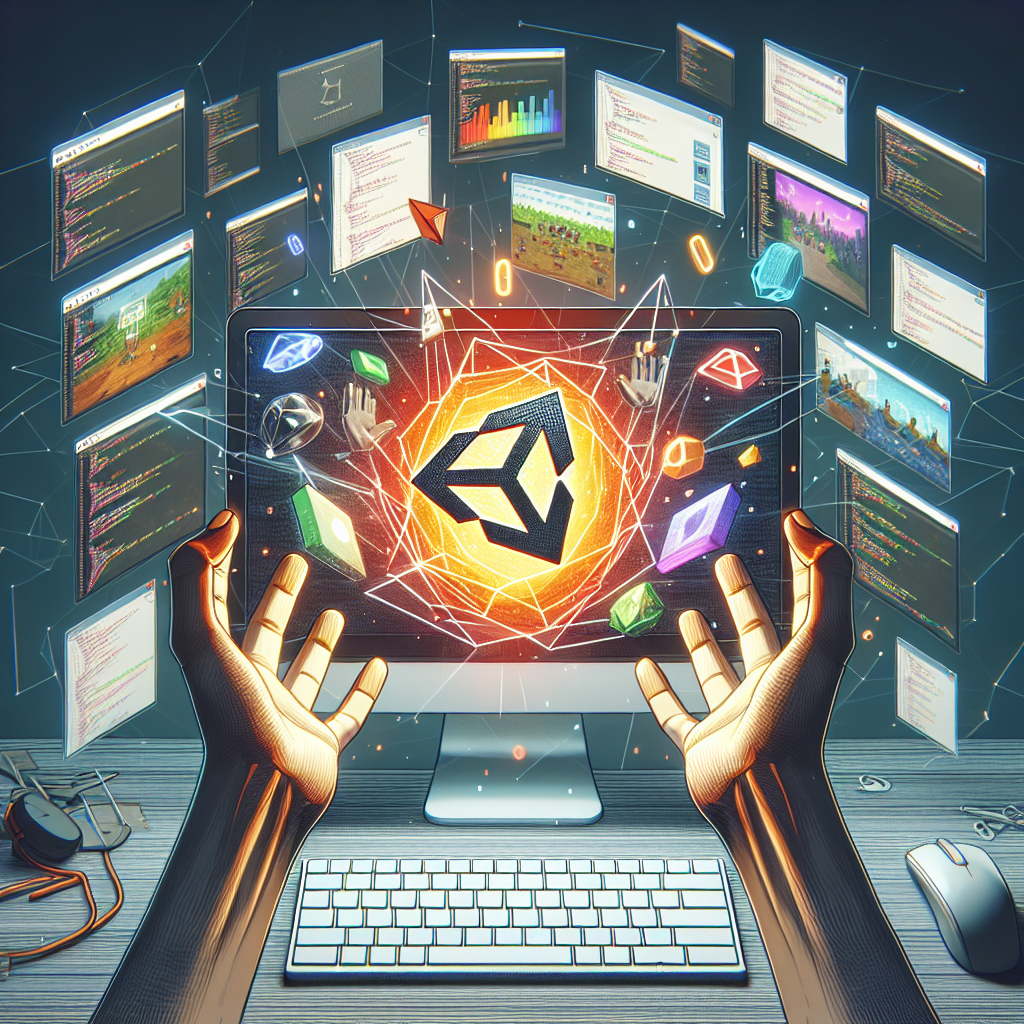Game Development Made Easy: Top Tips for Beginners Using Unity
The world of game development is both exciting and daunting, especially for beginners. However, with the right tools and knowledge, anyone can embark on their journey to create fantastic games. Unity, one of the most popular game engines used today, provides a user-friendly platform that empowers aspiring developers to turn their ideas into reality. Whether you are aiming to build a simple mobile game or a complex 3D environment, Unity offers resources that make the process easier. Here are some top tips for beginners diving into game development using Unity.
1. Get Familiar with the Unity Interface
Before you start developing, take the time to familiarize yourself with the Unity interface. Spend some time exploring the various panels such as the Scene view, Game view, Hierarchy, Inspector, and the Project window. While it may seem overwhelming at first, understanding how these panels interact with one another is crucial to navigating the engine effectively. Unity offers numerous tutorials and documentation to help you get acquainted with its layout.
2. Start with Beginner Tutorials
Unity provides a wealth of learning resources for beginners. Start with official tutorials on the Unity Learn platform, which covers various aspects of game development, from basic scripting to creating complete game projects. These step-by-step guides are a great way to get hands-on experience and learn the fundamentals without getting lost in complicated concepts.
3. Leverage Unity Asset Store
One of the biggest advantages of using Unity is the Asset Store, a marketplace filled with high-quality assets, including 3D models, animations, sound effects, and more. As a beginner, you don’t need to reinvent the wheel; leverage existing resources to help build your game. This will save you time and allow you to focus more on game design and mechanics than on creating assets from scratch.
4. Understand Game Mechanics and Design Principles
Before you start coding, take a moment to define your game’s mechanics and design. Think about the core gameplay loop, the objectives for players, and how players will interact with the environment. Reviewing fundamental game design principles, like balancing challenge with accessibility, can significantly enhance the player experience. Document your ideas in a Game Design Document (GDD) to keep your project organized.
5. Master C# Programming Basics
Unity utilizes C# as its primary programming language, so acquiring a working knowledge of C# is essential for effectively scripting within Unity. There are plenty of free online resources, courses, and books that teach programming basics tailored to game development. Focus on understanding object-oriented programming concepts, as they are fundamental to structuring your game code.
6. Build Small Projects
As a beginner, it’s tempting to dive headfirst into a grand project filled with extensive features. Instead, focus on smaller, manageable projects that allow you to experiment and learn. Consider recreating classic games like Pong or Tetris as an entry point. Small projects will help consolidate your skills and build your confidence as you get familiar with Unity.
7. Embrace Version Control
Using version control systems like Git is crucial for any development project. As you work on your game, keeping track of changes will help you avoid losing progress and experiment without fear. Platforms like GitHub offer free hosting for your projects, making it easier to collaborate and share your work with others.
8. Join a Community
Game development can sometimes feel isolating, but joining a community can provide support and motivation. Engage with fellow developers on forums like Unity’s Community, Reddit, or Discord servers dedicated to game development. These platforms are great for sharing ideas, receiving feedback, and finding solutions to challenges you may encounter.
9. Iterate and Playtest
Once you have a playable version of your game, don’t just move on to the next project. Iteration is key in game development. Pass your game around to friends or fellow developers to get their feedback. They can provide valuable insights and identify issues that you may have missed. Based on that feedback, make necessary improvements and continue playtesting until you’re satisfied with the results.
10. Be Patient and Persistent
Game development is a journey that requires patience and persistence. There will be challenges along the way, but overcoming these hurdles is part of the learning process. Celebrate small wins, keep a positive mindset, and continue evolving your skills and knowledge.
Conclusion
Starting your journey in game development using Unity can be an incredibly rewarding experience. By familiarizing yourself with the tools, utilizing available resources, and engaging with the community, you can lay the foundation for success. Remember to keep your projects small, focus on learning, and most importantly, have fun! With dedication and creativity, you’ll be well on your way to becoming a skilled game developer in no time. Happy developing!




